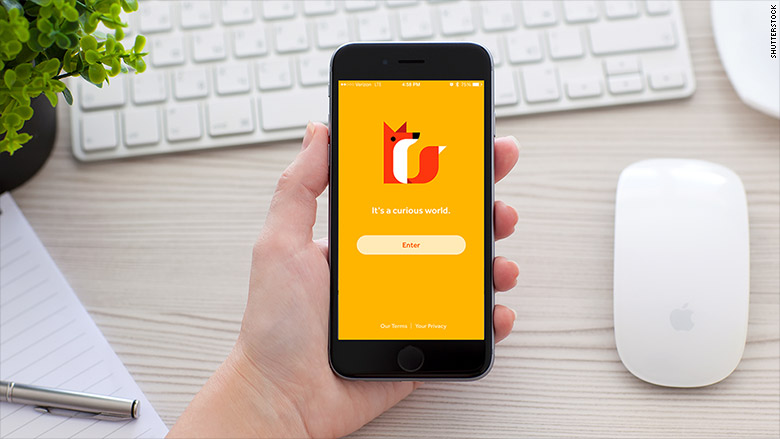
The Secret app, a social network that keeps its users' identities anonymous has just shut down. But it's doing something odd: giving investors their money back.
That's not usually how it works. A failed startup typically keeps the cash and tries to "pivot" -- change its business model on the fly -- to get another shot at survival.
If it works, it's glorious. Odeo tried podcasts but eventually became Twitter (TWTR). The silly check-in app Burbn became the supremely popular Instagram.
If a pivot doesn't work, it fails miserably and everyone loses lots of money. Tales abound.
That's what makes Secret's announcement on Wednesday so unique.
"Secret, Inc. still has a significant amount of invested capital," startup founder David Byttow said in a blog post. "But our investors funded the team and the product, and I believe the right thing to do is to return the money rather than attempt to pivot."
Last summer, Secret publicly stated it had raised more than $35 million from venture capitalists in two separate rounds. On Wednesday, it was unclear how much of that is left for a refund. Byttow declined to comment further to CNNMoney.
Investors included: Ceyuan Ventures, Fuel Capital, Index Ventures, Redpoint Ventures, SV Angel, Y Combinator cofounder Gary Tan and Reddit cofounder Alexis Ohanian. Others remained nameless.
This is the latest case of an incredibly young Silicon Valley company that raised lots of money in little time. The company started in early 2014, and by midyear had already become a major competitor to a similar service, the app Whisper.
Secret was started by Byttow (who spent time at Google (GOOG GOOGLE), Square, Medium) and Chrys Bader (who worked at Google and the startup launcher YCombinator).
The startup reached 15 million users and had 25 employees by January. Then Bader quit, citing differences in entrepreneurial vision.
In recent months, Secret became a haven for bullies who, protected behind a veil of anonymity, viciously hurt fellow teens in school.
In Wednesday's public note, Byttow said Secret's anonymity was great for "open communication and creative expression," but acknowledged this has been "the ultimate double-edged sword."
Byttow said he looks forward "to seeing what others in this space do over time." The CEO said he now plans to help his employees find other jobs.
And expect some firsthand advice on what it's like to run a startup.
"Over time, I plan to publish postmortems so that others can learn from the unique mistakes and challenges we faced and the wisdom gained from such an incredible 16 months," Byttow wrote.


